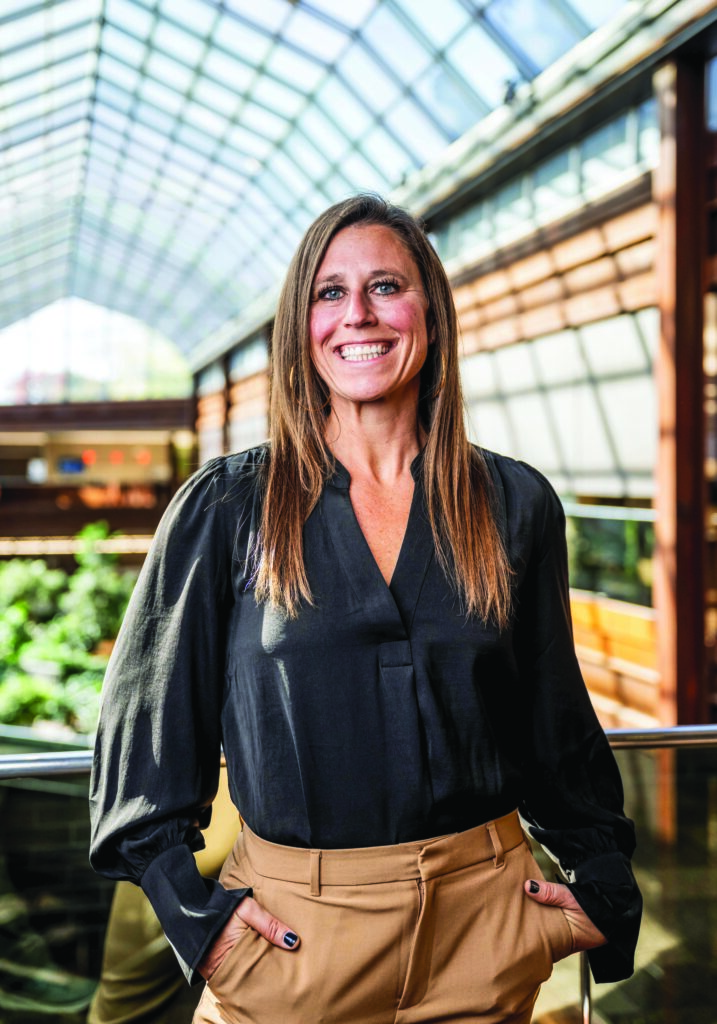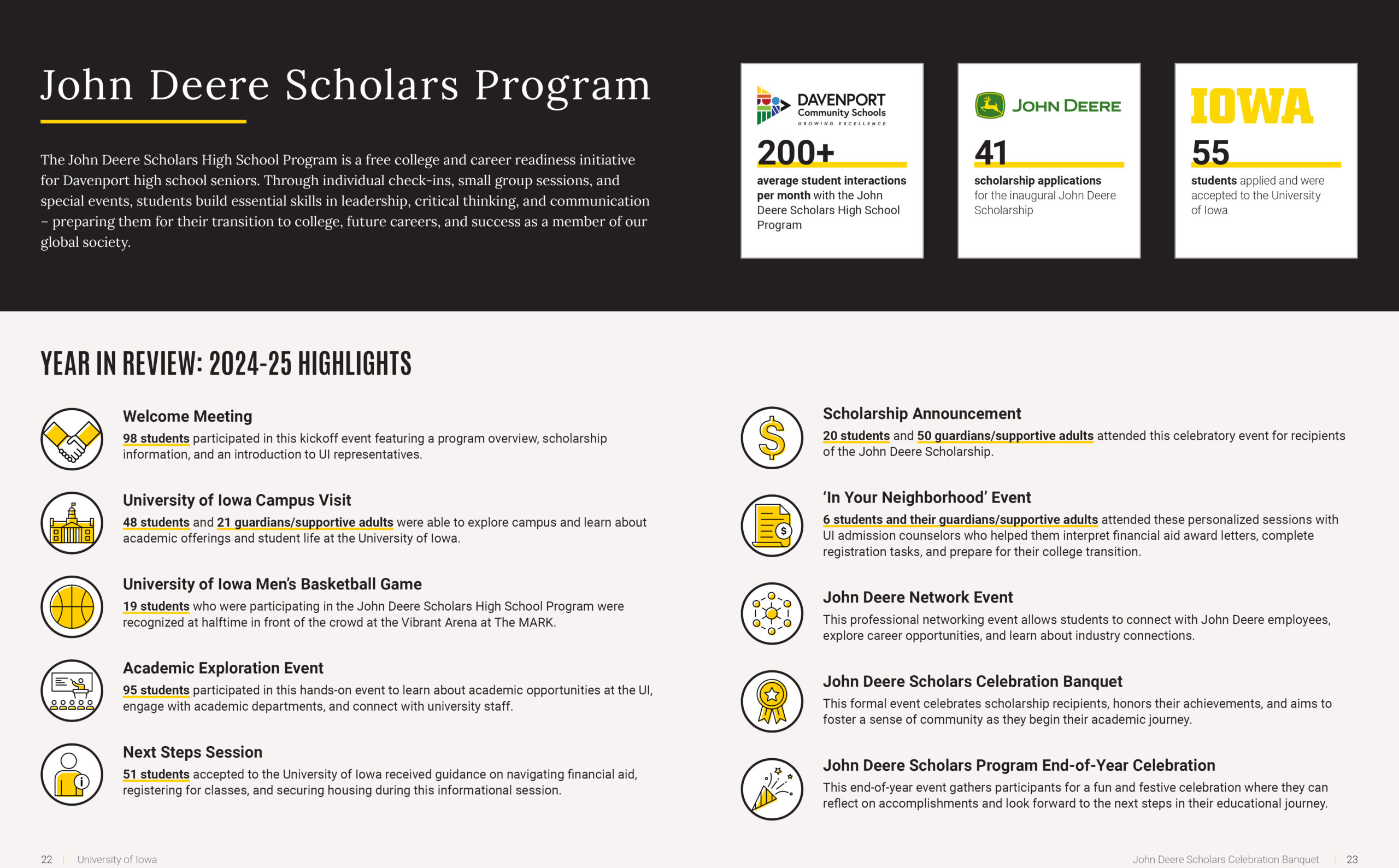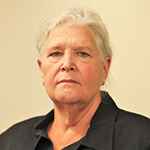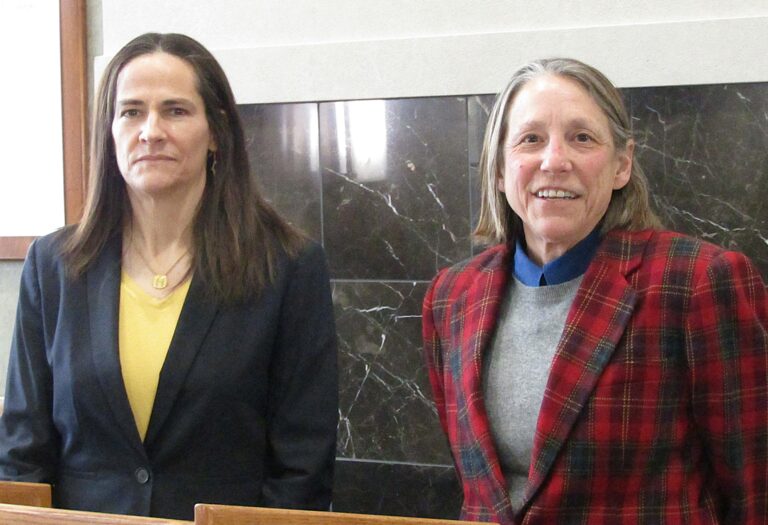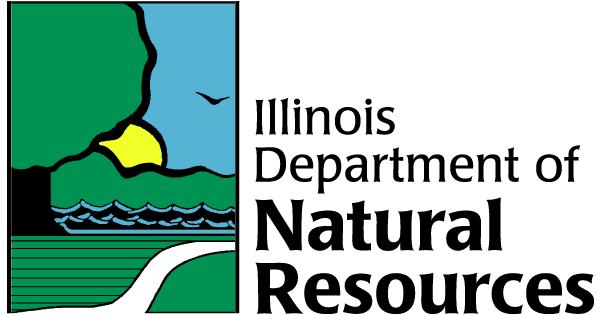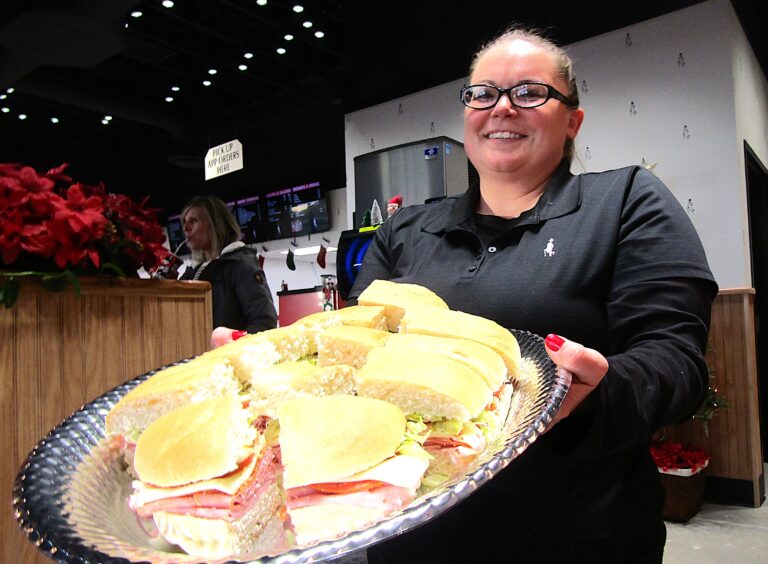For third-generation John Deere employee Taryn Edgin, taking the wheel of the John Deere Foundation as president and director of community relations last month “is a dream come true.”
It’s also a perfect fit because like many who grew up John Deere green, and later join the ranks as employees of the Moline-based company, community giving is hardwired in her DNA.
John Deere Vice President of Global Brand and Communications Mara Downing, who is Ms. Edgin’s boss shares those generational ties to Deere and that deep familial commitment to lifting up communities in the Fortune 100 company’s hometowns.
“Taryn embodies the spirit of the John Deere Foundation with her passion, leadership, and unwavering belief in the power of community,” the longtime Deere executive told the QCBJ.
“Her heart and vision will undoubtedly guide the foundation to new heights, enriching lives and fostering meaningful change for all those we support,” Ms. Downing said.
Since leading the foundation in early May, Ms. Edgin has been setting goals that include drawing more attention to the generosity of Deere workers and the benefits they bring to their communities. “We don’t talk about that enough,” she told the QCBJ.
She also leads the foundation in the middle of the 10-year commitment it made in 2021 to invest $200 million to create a long-lasting, purposeful impact for Deere’s hometown communities.
Ms. Edgin also has taken the lead of Deere’s philanthropic arm as the ever-cyclical farming and manufacturing industries are experiencing a down cycle driven by global trade, the economy, crop prices and demand.
That downturn will not, however, impact the foundation’s goals, which Ms. Edgin said “stay the same, largely because those needs are there no matter where we are in the business cycle.”
The foundation’s goals and its work are organized around three strategic pillars centered on ending hunger by “serving small farmers, serving youth and families, and then really serving our employees’ philanthropic goals as well,” Ms. Edgin said.
“If anything, we’re just making sure that, as we talk to the organizations that we’re partnering with, we bring the best programming and outcomes to those who are in need in local hometowns and then globally as well.”
She’s well aware of the challenges such downturns bring to families, including in the 1980s when the farm crisis clobbered the Quad Cities and other Midwest farming communities.
Ms. Edgin’s own family was impacted when her father, a welder at Deere and dedicated Deere man, was laid off for more than a decade before he was called back. He eventually retired from John Deere Seeding, Moline.
Volunteering way of life
Ms. Edgin remembers watching her parents “create what they have now out of a lot of hard work.” But the experience also left her wondering now if “there were more services at the time for our community, would it have been different for them or others in the community?”
At that time of her dad’s layoff, her mother – who later became an East Moline school teacher – was a stay-at-home mom.
“Even though my family didn’t have a lot, my mom was always taking us to shelters to donate, and she was always reinforcing for us that we still have more than others.”
Ms. Edgin and husband Josh, an IT director who also works at Deere World Headquarters, model that same example for their own son and three daughters who range in age from 20 to 7.
She credits the generous volunteer benefits offered by Deere for her family’s ability to dramatically multiply the impact of their volunteer community work. Through that generous matching program, workers are not only given time off to volunteer, Deere pays $20 an hour to the organizations to which employees choose to give their time, she said.
Up to $3,500 in matching funds is allocated for each employee, so when Ms. Edgin and her husband invest $3,500 in time to an organization, she said, their combined efforts represent a $14,000 a year impact to that nonprofit.
Their family isn’t alone in making that kind of commitment to the community.
Indeed, Ms. Edgin’s short tenure has been punctuated by good news and celebrations that illustrate that impact.
Most recently, on Tuesday, June 3, for example, John Deere was named for the fourth straight year to The Civic 50 by George H.W. Bush Points of Light. It’s the largest nonprofit dedicated to promoting corporate citizenship by highlighting companies that lead through social impact and civic engagement.
Ms. Edgin said that distinction “reflects our commitment to trust-based philanthropy and unrestricted giving while highlighting the incredible efforts of our employees, who work tirelessly to improve our customers’ lives while building stronger communities.”
For example, 2024 was another record-breaking year for John Deere employee generosity. Globally, workers contributed 342,015 volunteer hours. That’s a 31% increase from 2023’s 261,214 volunteer hours. The generosity of Quad Cities employees is equally impressive, with Deere workers recording 74,543 volunteer hours and donating $3,264,017 in 2024.
Preparing for the future
Helping prepare the next generation for a better future is also a critical function of the foundation, Ms. Edgin said, and that was on display on Tuesday, May 13, when the John Deere World Headquarters hosted the inaugural John Deere Scholars’ recognition event.
It celebrated 20 graduating high school seniors who make up the first-ever class of John Deere Scholars.
That unique partnership between the University of Iowa, the Davenport Community School District and the Deere foundation is providing $6.6 million to need-based, low- to middle-income high school seniors in that school district. The program will provide academic, financial, and social support – such as mentors for 60 students – over the next three years.
Scholarships will cover 90% of the total cost to attend the university and will be provided for all four years of the student’s education.
Ms. Edgin knows how important such scholarships can be. A four-year Illinois legislative scholarship from then-Illinois state Sen. Denny Jacobs of East Moline helped her earn an undergraduate degree and lit the fire that resulted in her ultimately earning her MBA.
These days, Ms. Edgin and her family live in Bettendorf, but she grew up in East Moline and went to United Township High School. Her father, one of seven children, wasn’t the only family member who worked at Deere and her grandfather before her also had deep ties to the company, including that his farmland was reportedly used to test Deere equipment.
Those roots are important, she said “because part of my role is also community relations and understanding what the need is in our community more broadly, and what is going on economically, and working with leaders in the community to really understand need and how Deere can support that.”
Ms. Edgin is passionate about the cause not only because of her family’s ties but her own 21 years of experience across major divisions of John Deere. They included operations, business development, portfolio and product management, and most recently as the global director, business communications and enterprise content, where she spearheaded a communication strategy for 75,000 global employees.
When the foundation position opened, she told the QCBJ, she was quick to jump on it.
Future plans include visiting Deere’s hometowns to understand the needs of those communities in the United States and globally to better serve their needs.
Spotlighting generosity
Ms. Edgin said another priority is spotlighting the work of John Deere’s army of Social Responsibility Ambassadors who are stepping up every day to help their communities. “It’s not their full-time job, but they are so passionate about giving in their communities for the units that they represent,” she said of the 100 or so SRAs organizing volunteer events for their units in the U.S. alone.
Though Ms. Edgin’s own journey ultimately led her to John Deere World Headquarters and the foundation, a significant part of her Deere story has been written in manufacturing.
“Probably some of my favorite, most challenging memories and history with the company has been in that because every so many minutes and hours you’re producing something that goes to our customers, that farms the land, or paves the roads that will help people around the world,” she said. “It’s a real, monumental, amazing mission.”
Her journey has included working in supply management and buying parts for the assembly line. She also was a floor supervisor, or module leader, for Deere’s four-wheel drive loader line.
“I was young and, you know, highly spirited, and thought I was going to change the world,” she said. At the same time, that experience gave her a closeup look at the impact of workforce reductions.
“I remember we had quite a bit of volume reduction in that first year, which impacted our employees, where we had to lay people off,” Ms. Edgin said. “And I remember thinking, ‘Oh my gosh, this is what my dad went through.’ And seeing these individuals get laid off, and seeing that impact on them was just kind of a full-circle moment and it was a very eye-opening, very pivotal experience.”
Along with many nonproduction workers she also was pressed into service to make Deere’s big green and yellow machines during the 2021 United Auto Workers strike.
“It is very hard work. It makes you really appreciate the thousands of employees we have doing that every day, whether it’s assembling, welding, welding in the summer, it’s no joke,” she said.
“So coming over here gives me a whole different amazing lens to corporate communications, how we create content, thinking about our employees as an audience,” she said of the foundation she now leads. “How do we inspire them and inform them in a way that they can help drive our strategic outcomes? So that’s been a really cool pivot.”
John Deere 2024 Community Impact:
- Global volunteer hours: 342,015
- Increase from 2023: 31%
- Quad Cities volunteer hours: 74,543
- Donations by employees in the Quad Cities: $3,264,017
Source: John Deere Foundation

